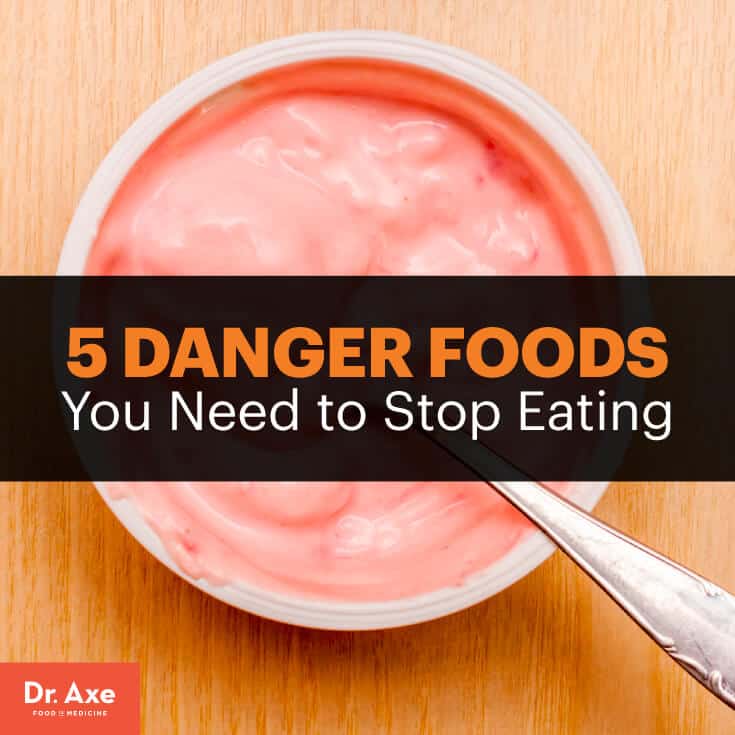Just having a little fun with photography and textures!
Monday, September 19, 2016
Friday, September 9, 2016
5 Danger Foods You’re Consuming on a Regular Basis
by Dr. Josh Axe
https://draxe.com/danger-foods/?utm_source=newsletter&utm_medium=email&utm_campaign=sep_2_newsletter_a
Used by permission

Also known as “intestinal permeability,” leaky gut is characterized by a malfunction in the tight junctions of your intestines. This results in things like toxins, microbes and undigested food particles leaking out of your gut and into your bloodstream. This sets off a cascade of inflammation, leading to all sorts of side effects and diseases like allergies, asthma, eczema and autoimmune disease symptoms.
Clearly, leaky gut doesn’t only impact your gastrointestinal tract. Bloating, food intolerance and gas are common symptoms in people living with leaky gut, but not everyone experiences them. One important way to start healing your gut is to start avoiding danger foods. Let’s take a look.
Danger Foods to Always Avoid
1. The Wrong Fats
The best sources for healthy fats include things like avocados, raw or organic grass-fed butter, omega-3 rich fish like wild-caught salmon or anchovies, coconut oil, and extra virgin olive oil. Always avoid damaging, processed fats found in things like margarine, other “vegetable oil spreads,” and rancid, inflammatory vegetable oils like canola oil, safflower oil, and cottonseed and soybean oils.Processed oils are extracted by high heat and pressure and the use of solvents. The fats in these oils are exposed to light and air, which oxidizes the fat, turning them rancid. The high heat and pressure destroy antioxidants and alter the chemical nature of the fat, creating dangerous free radicals. BHA and BHT, dangerous preservatives, are then often added to the oil to extend the shelf life.
Trans fat, listed as hydrogenated oils or sometimes “shortening” on the ingredients label, should be avoided at all costs, too. Harvard researchers estimate that trans fats cause about 50,000 premature heart attack deaths annually. (1) A 2015 review of studies concluded that those who ate the highest levels of trans fat were 34 percent more likely to die from any cause compared to people who ate the least trans fat. (2)
2. Tap Water
OK, not technically a food, but tap water is a diet staple for millions of Americans. (It’s the second most consumed beverage behind carbonated soft drinks.) What’s concerning here is that a growing number of microbiologists believe even low levels of chlorine commonly found in tap water could be damaging the beneficial bacterial community in the digestive tract. (3) That’s the No. 1 reason this lands on the danger foods list.I’m not suggesting that bottled water, which is about 300 times more expensive than tap water, is the right alternative, either. (4) Numerous studies suggest bottled water also contains contaminants. A recent German study detected nearly 25,000 chemicals in a single bottled water. (5) I suggest looking for a water filter featuring the NSF/ANSI 42 standard label. This means it’s been proven to significantly reduce levels of chlorine from water. Activated charcoal filters often bear this label.
3. Surprising Inflammatory Grains
This may come as a surprise, but I’m not here to tell you that all grains are evil. While I do recommend going exclusively grain-free during the first phase of the leaky gut diet, avoiding ancient grains for the rest of your life may not be necessary. Instead, learn how to soak and sprout grains. This helps break down gut-irritating phytic acid and antinutrients in ancient grains, helping your body absorb more nutrients without all of the unnecessarily inflammation.Years ago, our ancestors typically soaked, sprouted and fermented ancient grains before consuming them. The shift to eating grains without taking these important steps has left our bodies more inflamed.
In fact, consuming high levels of phytic acid (or phytate, as it’s called in its salt form) in unsprouted grains can actually lead to nutritional deficiencies. These antinutrients impair your body’s ability to absorb things like calcium, copper, iron, magnesium and zinc. (6) Phytic acid also inhibits our digestive enzymes called amylase, trypsin and pepsin. Amaylase breaks down starch, while both pepsin and trypsin are needed to break down protein. (7, 8)
For those who love bread and don’t want to give it up, Ezekiel bread in moderation is a better choice.
4. The Sneakiest Sugars
To be clear, I’m not suggesting you eliminate all forms of unprocessed fruit from your life. In fact, the health benefits of blueberries make them a great part of your breakfast routine. What you need to start avoiding are the sneakiest forms of sugar, though. This includes avoiding things like yogurt (even organic yogurt) that contains added sugar.Too much sugar causes yeast overgrowth, triggering the yeast in your gut to start overtaking the beneficial microorganisms in your gut. Sugar feeds yeast overgrowth and candida, causing malabsorption issues over time. This means your body won’t be able to absorb and digest all of the vitamins and minerals you need. If your’e experiencing certain vitamin and mineral deficiencies, particularly vitamin B12, iron, zinc and/or magnesium, know that these are chief symptoms of leaky gut.
5. Gluten
Intense breeding practices in agriculture have left us with a modern wheat that’s loaded with gluten, a protein that’s very hard to digest. Today’s hybridized wheat contains about double the amount of gluten compared to grains of the past, too. And let’s not forget that, historically, people prepared wheat in a much different way, routinely sprouting and pre-digesting it so it’s easier for the body to process.Today, some people in particular are more sensitive to gluten. Some signs of gluten intolerance include frequent headaches, infertility, muscle and joint pain, skin rashes, mood disorders, and a higher risk of learning disabilities, among others.
Foods with gluten aren’t always obvious. For instance, ketchup, ground spices, lunch meat and hot dogs are often unexpected sources.
Read Next: The Top 15 Anti-Inflammatory Foods

Subscribe to:
Posts (Atom)

